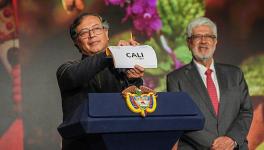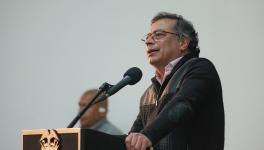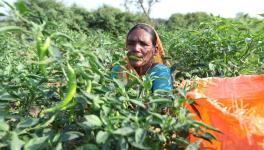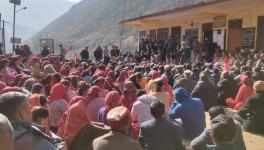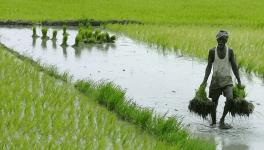Colombia's New Left-Leaning President Has Big Economic Plans
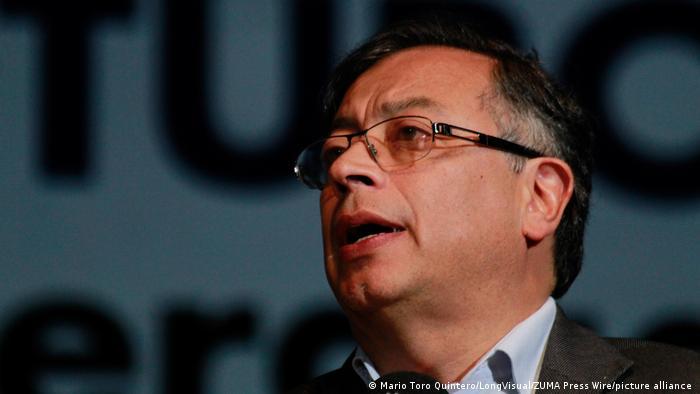
Colombian president-elect Gustavo Petro wants to raise taxes on the country's 4,000 richest individuals
President-elect Gustavo Petro and vice president-elect Francia Marquez won an historic race with the promise to bring about deep social, economic and political change in Colombia. But will Petro, the first left-wing president in the history of the country, be able to keep his promises?
Colombia's gross domestic product (GDP) will grow by 6.1% this year, the OECD forecasts, due to a boost in post-pandemic consumption and the increasing demand for fossil fuels because of the current energy crisis in Europe. But Colombia is battling with the highest public debt in its history at 65% of GDP, while annual inflation has risen to 9.6%.
Only about half of the population has formal work. Just a quarter of eligible adults have access to the pension system. The pandemic made matters worse. After years of stagnation, poverty is rising again.
Petro's plan to finance change
The tax reforms of the outgoing government resulted in a nationwide protest, leaving the country in need of new reforms that tackle inequality, poverty and development in rural areas.
Petro wants to raise 50 billion pesos ($10.7 billion, €10.9 billion) for public investment and to tackle the fiscal debt. He proposes gradually lowering the corporate tax rate by 5 percentage points to 30% and to increase taxes on the 4,000 wealthiest Colombians.
"There are too many taxes on companies and not on individuals, and tackling the issue of personal income tax is essential if we want to make the system more progressive," said Finance Minister Jose Antonio Ocampo in a recent interview with the Financial Times.
Shockingly, only 5% of the working population pays income tax at all. High rates of informal work and tax evasion have created substantial deficits in Colombia's income tax revenues.
Using the land better for agriculture
But the new government wants to go even further: an essential part of the plan is a huge reform of the agricultural sector in a country with a complicated history of landownership.
According to the Geography Institute Agustin Codazzi, 28% of the Colombian territory that could be cultivated is not productive. The country currently imports around 30% of the food it consumes, including cereals, corn, rice, beans and potatoes. The reform intends to tax big landowners who don't use their land to its full potential.
"We were self-sufficient in food. How is it possible that we are now importing beans from China? That is a clear sign of abandonment," said the incoming minister of agriculture, Cecilia Lopez, in an interview with the Spanish newspaper El Pais. "The farmers were abandoned because our economy focused on developing big industries."
At the same time, 36% of the Colombian territory is being overused. "Those territories have a substantial risk of degrading. There are forests that should be protected, and the presence of cattle is an environmental offence," said Juan Antonio Neto Escalante, director of the Geography Institute Agustin Codazzi, earlier this year.
Developing the rural regions of Colombia is also essential for peace in the country: a first step is to fulfill the first agreement in a peace treaty between the FARC rebel group and the Colombian government — a comprehensive rural reform.
Colombia's energy transition
The incoming president also intends to start Colombia's transition to green energy. He has promised to ban open-pit mining, cancel fracking pilot projects as well as stop any further gas and oil explorations.
Coal, oil and cocaine account for half of Colombia's exports, according to the National Administrative Department of Statistics. The increasing demand for coal and oil due to the ongoing energy crisis in Europe is helping the country's economy at the moment. Its revenues stabilize the fiscal debt and could help the country meet its international debt obligations.
Last year, however, the country lost its investment ranking and the devaluation of the Colombian peso against the dollar has recently reached an historic high. The heavy reliance on fossil fuels makes the country vulnerable to market volatility and is a setback to human rights and environmental protection.
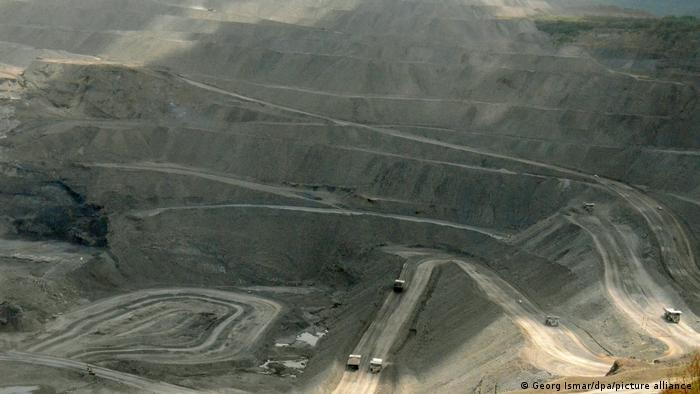
Outgoing president Ivan Duque has set plans in motion to expand the controversial El Cerrejon open-pit coal mine
A broad coalition for change?
Since the election, the new government has built a wide coalition in congress by involving some unlikely allies from the Liberal Party and the Party of National Unity, which was founded by former right-wing president Alvaro Uribe Velez.
A majority in the Senate and the House of Representatives could enable Petro to pass his package of structural reforms. However, the nature of the proposals will likely be challenged by rich Colombians, big landowners and companies in the energy sector.
Some economists predict that the new government will not be able to reduce public debt while increasing investment, at least not in the first two years. In which case Petro will have to focus on making administrative decisions to tackle corruption and mobilize means to invest in regions of the country that desperately need it — rural Colombia.
Edited by: Kristie Pladson
Get the latest reports & analysis with people's perspective on Protests, movements & deep analytical videos, discussions of the current affairs in your Telegram app. Subscribe to NewsClick's Telegram channel & get Real-Time updates on stories, as they get published on our website.










